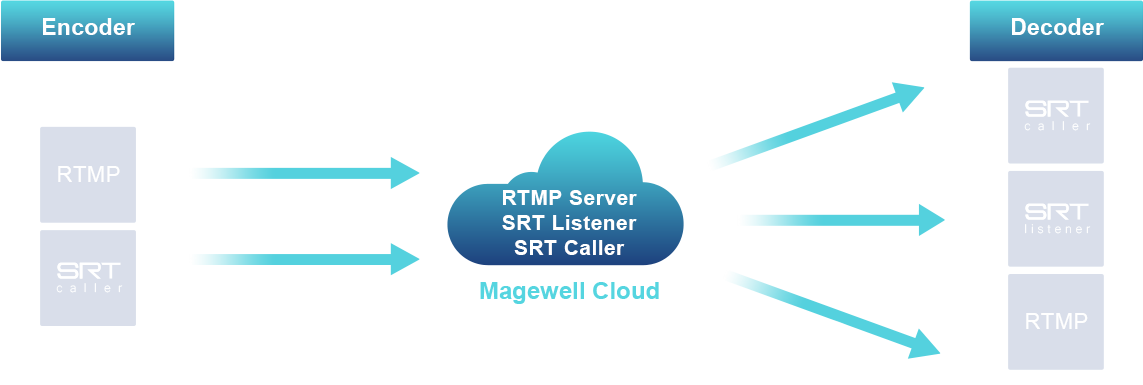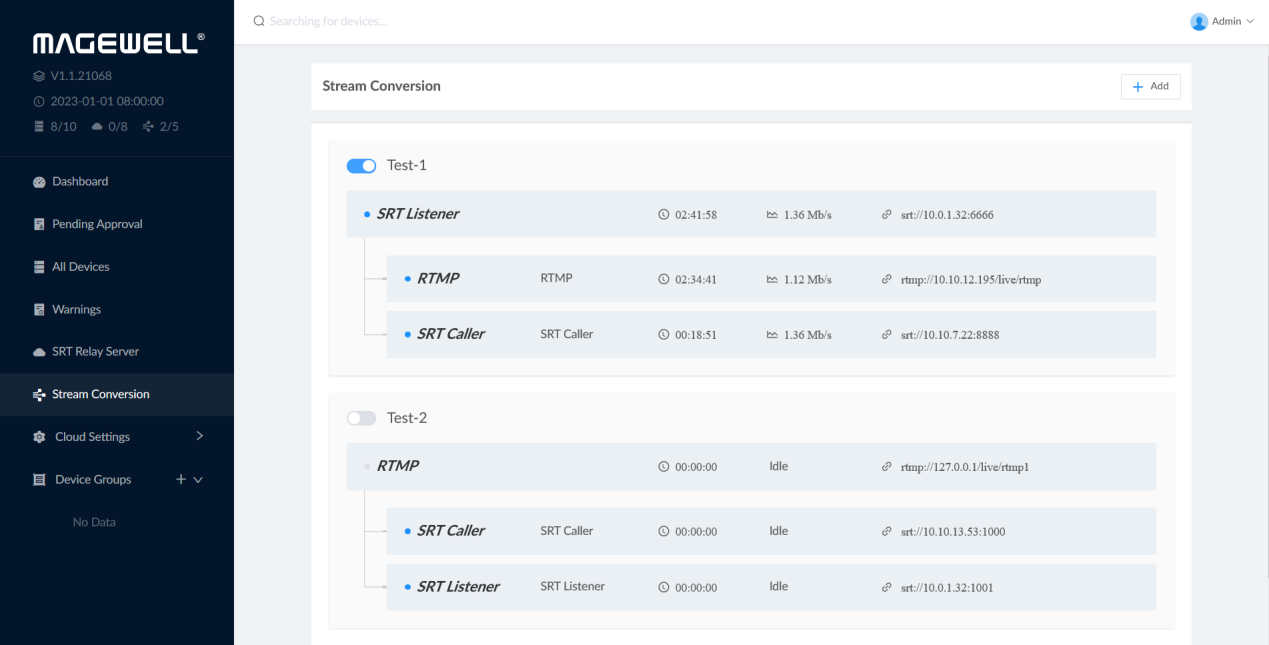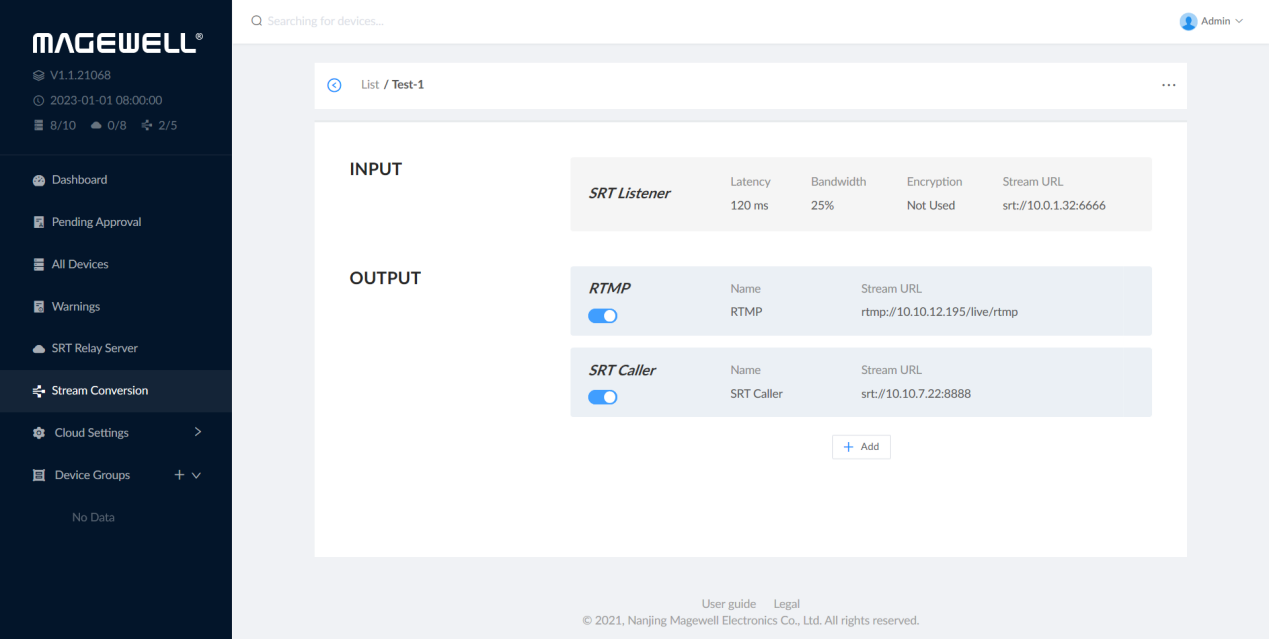Magewell Cloud Feature Overview: Streaming Protocol Conversion
The SRT protocol enables secure, reliable and low-latency transmission even over unpredictable networks such as the public internet, but many legacy encoders and decoders do not directly support SRT. The Magewell Cloud platform can convert streams bi-directionally between RTMP (one of the most widely deployed streaming protocols) and SRT, allowing users to take advantage of the robustness of SRT within their workflows while providing compatibility with the vast array of RTMP-compatible devices and software.
1. Multiple conversions for flexible workflows
Magewell Cloud's Stream Conversion feature provides bi-directional transformation between RTMP and SRT, enabling users to implement various workflows that incorporate SRT and RTMP devices for live streaming, IP-based production, remote contribution, multi-site distribution and more.

In addition, multiple conversion tasks can be defined and run on Magewell Cloud simultaneously, enabling multiple workflows in parallel. Magewell Cloud can convert and redistribute each RTMP or SRT input stream in RTMP, SRT Caller or SRT Listener mode, and the number of output streams is unlimited.
2. Real-time monitoring of stream status
The Stream Conversion tab in Magewell Cloud lets users manage multiple stream conversion tasks and monitor the status of each stream in real time, including running time, bitrate, input, and output stream URLs.

Each stream conversion task and each individual output stream also has a shortcut switch that allows users to easily enable or disable it. Users can pre-configure multiple conversion and transmission tasks, then simply turn the streams on or off based on their needs.

3. Compatible with a wide range of devices
Magewell software and hardware-based streaming solutions – including the Capture Express software, Ultra Stream encoders, Ultra Encode encoders and Pro Convert decoders – and third-party SRT and RTMP products can connect to Magewell Cloud. Users of existing RTMP and SRT-compliant devices can use them without worrying about compatibility issues between products and brands, which improves the scalability and flexibility of streaming workflows.